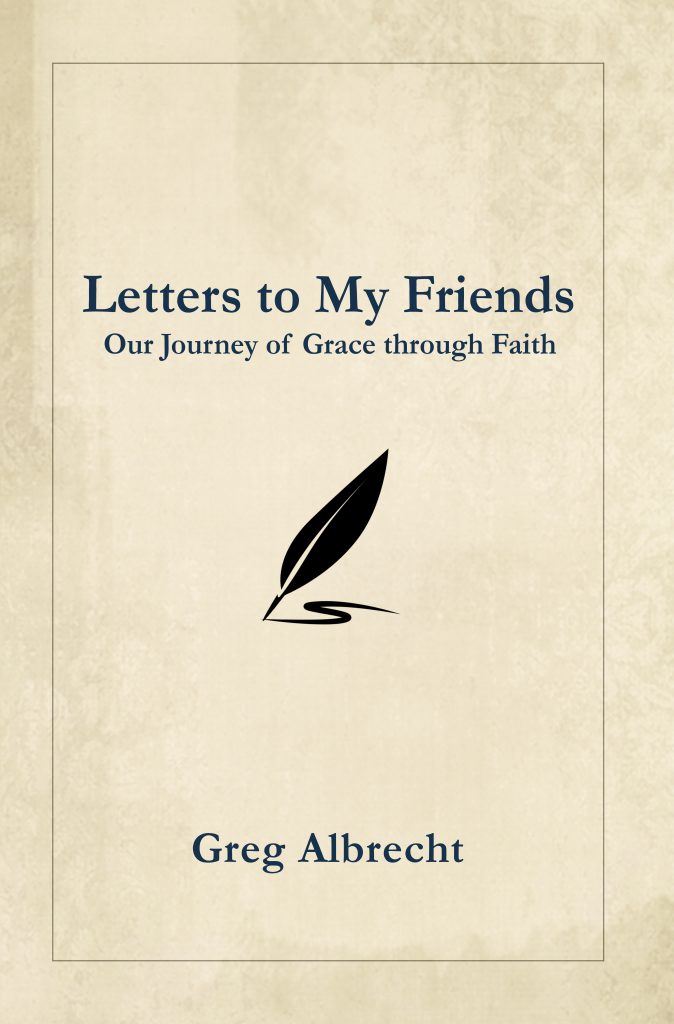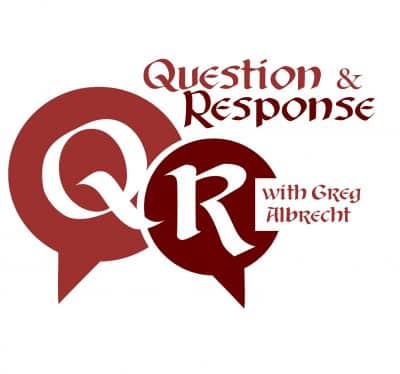Love Is… And Love Is Not – by Greg Albrecht
Friend and Partner Letter from May 2022
- Love IS patient
- Love IS kind.
- Love is NOT envious.
- Love does NOT boast.
- Love is NOT proud.
- Love is NOT rude.
- Love is NOT self-seeking.
- Love is NOT easily angered.
- Love does NOT keep a record of wrongs.
- Love does NOT delight in evil, rather it rejoices in truth.
- Love protects.
- Love trusts.
- Love hopes.
- Love perseveres.
- Love never fails.—1 Corinthians 13:4-7
The ultimate and sublime demonstration and example of love is the Cross of Christ. There is NO GREATER LOVE than Jesus’ voluntary self-sacrifice for us. When the Cross of Christ was buried in the soil of this earth, Jesus was lifted up (John 12:32). When Jesus was lifted up, the love of God was singularly and forever planted on earth, for all humans. When armies discover, visit and conquer a territory, they raise their flag. Jesus raised the flag of God’s love on his cross. After his body was buried, Jesus himself was raised from his burial place, becoming our risen Lord.
Love is, as the classic song goes, “a many-splendored-thing.” Love truly is many-splendored and multi-faceted.
We first receive, on the purely human level, love from our parents. As an infant, and for some decades that follow, we have little idea or appreciation how much of herself our mother gave to “bring us into this world.”
As we grow, we give and receive friendship love, and then in our teens and twenties, we experience another kind of love. When we find ourselves infatuated, in love with the person we hope to marry, the entire world seems to revolve around just us. At this time and stage of our life, we can only imagine one kind of love—the love we have and feel for our beloved. At first, before we marry and for a short time afterwards, love seems easy.
When we are infatuated with another, we think of love as our desire to “have” another and “make” another person our own. As we mature, we realize love is not at all about owning and possessing, and that there are many degrees and levels of love. We naturally begin to realize, especially when Christ lives in us, that love, at its best and highest expression, is hard.
In The Four Loves, C.S. Lewis speaks of need love as the love humans seek to fill their needs and fulfill their desires. Need Love is the love we naturally crave. By contrast, he describes gift love as a higher, transcendent love. As we mature and grow in love, and particularly as we mature in the love of God, in Christ, we discover Gift Love is a love much harder than we had once realized, so that engaging in Gift Love makes us vulnerable and exposes us to loss and pain.
Lewis also used four Greek words to describe the human panorama of love. His description has become a standard template used by many teachers and pastors since 1960, when he published The Four Loves. According to Lewis:
- Eros is romantic love. Eros is the love we speak of when we are “in love” or “fall into love.” Eros is a sexual force that can grow into one of the richest expressions of marital love or when solely self-absorbed, a dynamic that can destroy lives and relationship. Eros can grow into goodness or it can become a great evil.
- Philia is friendship love. Friendship is a non-erotic love we choose and a love which necessitates contribution and giving.
- Storge is familial love of parents, children and siblings; it is a relational love in which we find ourselves by chance, not by choice.
- Agape is divine love, the love that never changes. It is, of course, the highest of all The Four Loves. When given and lived within those who yield to God’s love, divine love empowers one to see the needs of others as equal to or greater than one’s own. Divine love is forever; it never leaves. It is not reliant on or defined by feelings, which come and go. Divine love is more about giving than receiving. The love of God is given without an expectation of demand on a “return on investment.”
Christmas and Easter, the great towers of Christ-centered faith, are founded and empowered by agape love—God’s great and supreme love for us, his children. Some of the secular days we observe annually focus on gratitude and thanksgiving, a facet of love—including Thanksgiving and Memorial Day. Two of the secular holidays intentionally target love—Valentine’s Day and Mother’s Day. Of all the secular celebrations that remind us of human love, Mother’s Day comes the closest to being a holy-day rather than merely a holiday. Of all our holidays, apart from our sacred days, Mother’s Day may have a greater nexus to God’s love than any others.
To receive God’s love is to realize that one is not worthy of his love and grace. To receive God’s love is a transformative experience that lasts eternally. God’s love is matchless and paramount, above all…but on the human level, to be a recipient of a mother’s love, a beneficiary of a mother’s nurture and blessed by a mother’s love and grace is one of the most divine of all purely human experiences.
Not all mothers (like “all” of anything) are angels. But when a woman becomes a mother, there seems to be something in her physiology that changes in her very essence and soul so that she, apart from all her own failings and sins, becomes filled with love for her child. Some cynically describe mother-love as “self-centered” for this love is uniquely experienced by a woman for her own children.
Far from being self-centered, mother-love is more likely an example of how humans, at their very best, cannot love beyond their boundaries. It is true that not every woman who has conceived, delivered, watched over, held, comforted and cried over the child to whom they gave birth have done so in an angelic fashion. It is true many messages on Mother’s Day cards are idealistic, because many children have not had exceptional experiences of care, comfort and concern from
their mothers. But of all relationships we have with other humans, we are all more likely to receive life-long grace, mercy and love from our mothers than any other source.
Motherhood is unique in all human relationships, and her role is critically important in the life of her children. The hand that rocks the cradle rules the world. How are mothers a picture of the divine? • Mothers ignore, wink at and downplay the shortcomings of their children.
- Mothers quickly forgive and make some of the most farfetched excuses for their children’s failure to make the grade.
- Mothers never give up loving—they love their children forever.
- Mothers love self-sacrificially—when there isn’t enough food to go around, mothers suddenly lose their appetite in order that their children may eat.
- Mothers love unconditionally. Of all the varieties and kinds of love we humans experience and know, mother-love is perhaps the closest to divine love.
Let us consider the nexus of God’s love and Mother-love, and appreciate and give thanks for both! I conclude with this final thought from Lewis’ The Four Loves:
“To love at all is to be vulnerable. Love anything, and your heart will certainly be wrung and possibly be broken. If you want to make sure of keeping it intact, you must give your heart to no one, not even an animal. Wrap it carefully round with hobbies and little luxuries; avoid all entanglements; lock it up safe in the casket of your selfishness. But in that casket—safe, dark, motionless, airless—it will change. It will not be broken; it will become unbreakable, impenetrable, irredeemable. The alternative to tragedy, or at least to the risk of tragedy, is damnation. The only place outside Heaven where you can be perfectly safe from all the dangers and perturbations of love is Hell.”
Happy Mother’s Day to one and all—may this time move us to deep appreciation for mothers at large, and for God, who created us all, including mothers!
Until next month,
Yours in Christ, our risen Lord,
Greg Albrecht










 Plain Truth Ministries | Box 300 | Pasadena, CA 91129-0300
Plain Truth Ministries | Box 300 | Pasadena, CA 91129-0300

